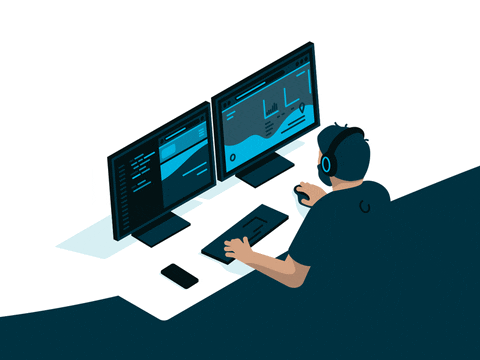Last updated on July 5th, 2020 at 06:15 pm
Today, data scientists are the emerging assets for companies, and it is imperative for candidates to possess the required skillsets to do wonders in this worthwhile career. But that being said, many people are in a dilemma whether they need a Ph.D. to become a data scientist.
In order to ensure efficient workflow in data science projects, companies are looking for Ph.D. candidates, turning a blind eye to the challenge of the skill gap.
Although Ph.D. candidates will gain an edge over other non-doctorate candidates with regards to knowledge and exposure, a Ph.D. degree in the field of data science will not ensure results due to the ever-evolving technology ecosystem.
Data science jobs ceased to exist a decade back, and anyone rarely opted for a Ph.D. degree in data science. As such, there were a limited number of data scientists who used to hold a doctorate in data science. Apart from that, until lately, several universities did not even provide courses to get trained in data science, which further triggered the scarcity of skilled candidates for the jobs.
Research reveals that there are over 4000 jobs for data science in the US, providing abundant opportunities for Ph.D. aspirants to pick out. As such, thinking about pursuing a Ph.D. degree in data science is not mandatory. Moreover, experts suggest that majority of challenges that companies confront do not require Ph.D. candidates.
Current Situation
Looking at the fast-paced changes in AI and data science spaces, novel technologies make headways, and numerous approaches get outdated, a Ph.D. in data science requires around 5-7 years.
For some people, TensorFlow, Jupyter Notebook, and PyTorch have only become mainstays in the past few years. Thus, these tools would not make into the data science courses in universities, and hence, myriads of candidates enrolled for Ph.D. in data science in 2014 or 2015, would not be skilled in new technologies that are comparatively commonplace now.
As a result, a Ph.D. degree in data science does not guarantee a skilled aspirant.
Data Science: Skills vs. Ph.D.
Skill gains more preference versus certificates in the data science landscape, which is witnessing cut-throat competition. Case in point, on Kaggle, wherein developers from across continents compete to win the challenges, loads of developers hold a firm grip sans having a Ph.D. degree in data science.
At present, there are several platforms that numerous companies can leverage to figure out the expertise of data scientists rather than looking for Ph.D. candidates. Data scientists, unlike other development roles, are tutored to resolve real-life problems on hackathons such as StackOverflow, Kaggle, and GitHub that are organized on a global level. As such, their performance on such platforms says a lot.
Apart from that, data science developers are using media platforms – LinkedIn, Medium, and Twitter – to display their proficiency in data science. Furthermore, a proven track record is what recruiters are giving preference to rather than a Ph.D. degree holder in data science
Online Courses Fill the Bill
Following the latest fad, the data science industry is seeing a colossal rise of e-learning channels and the students opting for them, reflecting the potential of bridging the skill gaps in the data science and AI landscape. As per the Analytics India Magazine, leading data scientists have gained expertise in data science careers following appropriate practices, mostly enrolling in online courses. They believe that one can reach new heights without a Ph.D. in data science.
Looking Forward
So do you need a Ph.D. to be a data scientist? Well, it depends. Research in the data science field is crucial as it brings new techniques on the table, streamlining the workflow. However, it is not a must as not all companies are much into research.
You can be a great data scientist if you apply conventional methods to solve challenges with data science. That is why it not quintessential for you to have a Ph.D. in data science.

